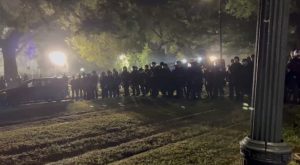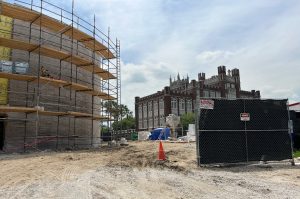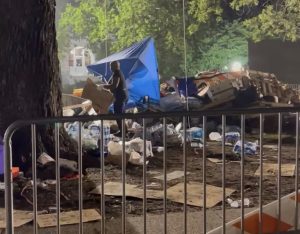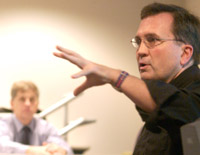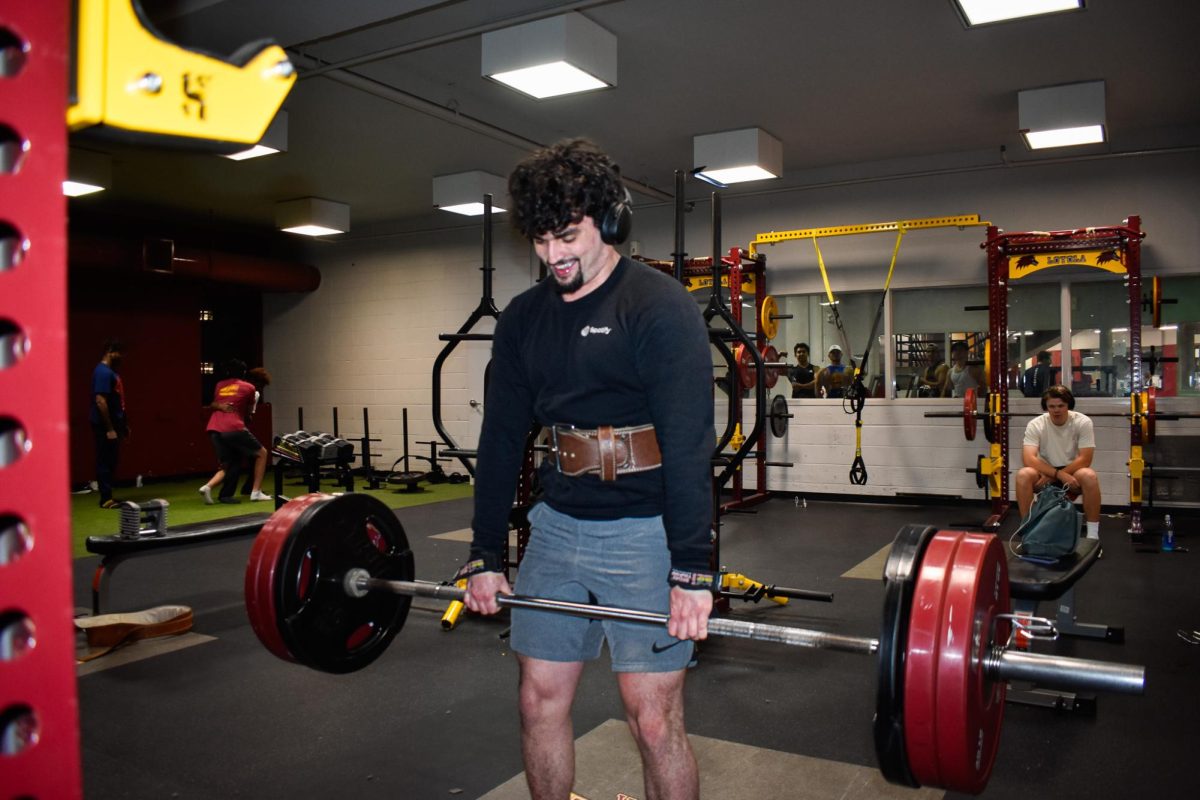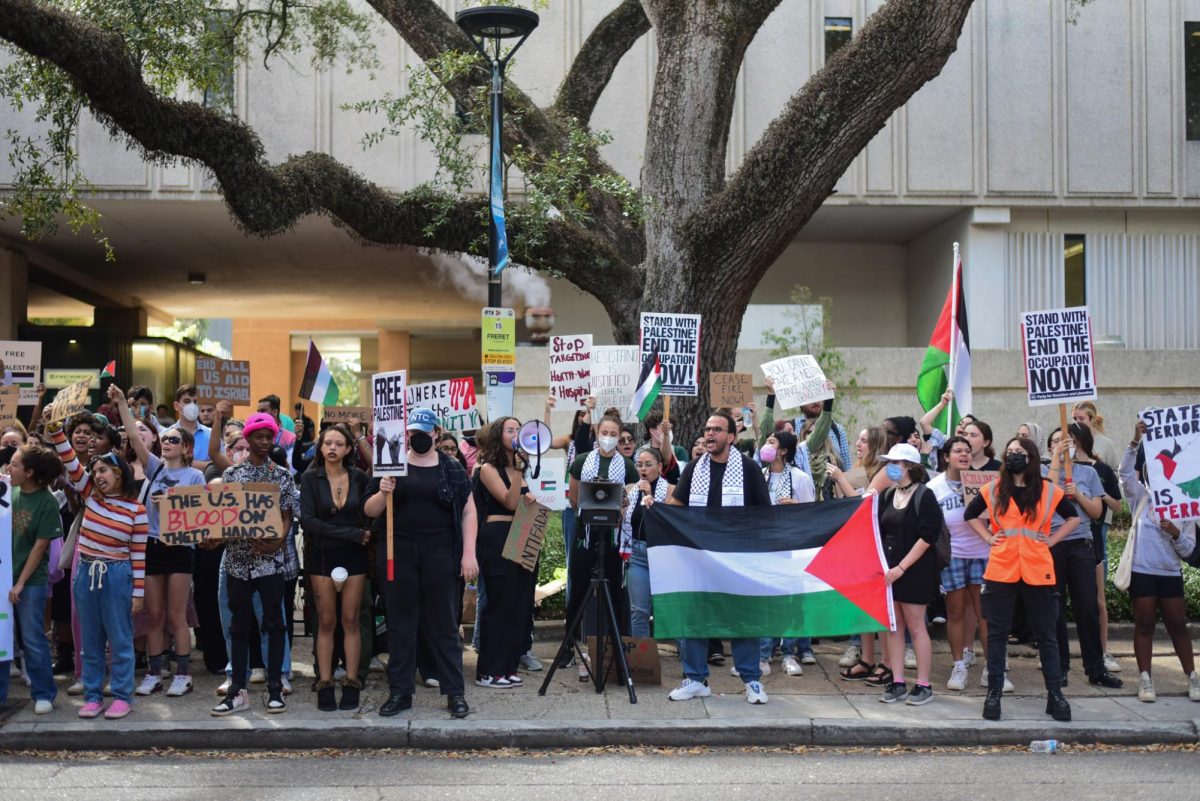After almost three years of disagreement, the University Senate unanimously approved Loyola’s first Intellectual Property Rights Policy at its first meeting of the semester.
Senate Supervisor Mary Blue, associate professor of the communications department, vocally endorsed the amended policy.
“I know I told all of you A and S not to vote for it [IPR policy] before but now you can,” said Blue, referring to the Senate’s past rejections of the policy, as well as to the upcoming meeting of the College of Arts and Sciences to approve or reject the policy. “It’s okay now.”
Unhappy with the initial versions of the IPR, which denied faculty any rights, Blue sent a copy of the policy to the American Association of University Professors in April of 2003 for suggestions to improve the policy.
“In the original, if I made a syllabus, Loyola owned it. If I created an assignment for my class, Loyola owned it,” Blue said. “But that’s not what copyright case law says.”
According to Blue, the copyright law says directed works are the property of the director of the work. The resulting article is the property of the newspaper, not the reporter. However, there is an exemption under copyright law that the university missed – the Teacher’s Exemption.
“It’s my job to share my work with my students, but it’s not my job to share it with other people, and that’s the point,” Blue said.
Besides the policy’s denial of faculty rights, the AAUP pointed out two other major problems. First, the policy placed the burden of proof of ownership on the faculty member in disputes with the university. Second, university expenses were repaid prior to the working faculty member’s expenses.
It was only after these changes were affected that the AAUP would endorse the policy.
“They [AAUP] said we have something to really be proud of, if we pass this policy,” Blue said.
Under the IPR, students, faculty and staff may obtain a copyright or a patent on any intellectual property that comes from applied research and artistic production.
Study guides, articles, films and even bibliographies are protected by the IPR.
In addition, the IPR protects: inventions, books, syllabuses, workbooks or manuals, instructional packages, tests, video or audio recordings, slides, transparencies, charts and other graphic materials, photographic (or other visual) materials, film strips, multi-media materials, three-dimensional materials, exhibits and computer software.
The policy also provides for an Intellectual Property Policy and Rights Committee. The six-member committee will decide ownership of intellectual property, as well as arbitrate ownership claims between faculty members.
The IPR will not be official until its approval by the College of Arts and Sciences in an upcoming meeting, as well as its subsequent approval by the board in Feb.
The Rev. Kevin Wildes, S.J., university president, also spoke at the Senate about his plans for the institutional advancement of Loyola.
Wildes’ top priority is a plan for the academic agenda. The plan will be strategic, moving Loyola forward as a national university and be integrated, which means the academic side of the university is supported on the financial, fundraising and facility sides.
“Say we wanted to hire more professors,” said Wildes. “Where would we put them? There’s no room in the facilities [for more offices].”
Another step for institutional advancment is Loyola’s current search for additional board members.
“The whole board is pretty much legal,” Wildes said. “We have a good base in gender, race and culture, but not professionally.”
In particular, Wildes is looking for someone to help with funding.
“Philanthropy – I’m not afraid to say that we need support,” Wildes said.
“But we also need someone who is going to balance the whole thing.”
So far the search has yielded three or four potential candidates.
Rhonda Cartwright, vice president of business and finance, also presented the Senate with a slide show regarding the factors affecting Loyola’s financial condition.
According to Cartwright, Loyola is largely tuition dependent, with net tuition and fees contributing 71 percent to the university’s operating budget.
In order to improve Loyola as an institution, the university is looking at ways to improve net tuition contribution, such as increasing the amount of endowed scholarships, improving the retention of students and scrutinizing the amount of financial aid that is awarded per student.
The university is also searching for ways to lower its dependency on tuition through alternative revenue sources and review of non-academic and academic programs.
Another cause for concern is Loyola’s decreasing number of students, Cartwright said. Although during the past ten years, student enrollment has been stabilized from 715 to 812, enrollment has dropped in the past three years from 878 students in the 2002-03 fiscal year to 821 in the 2004-05 fiscal year.
Cartwright attributed the drop in numbers to the better quality of incoming students.
“The quality of the students directly affects the quantity of students,” Cartwright said.
Sarah Castagnetta can be reached at [email protected].


